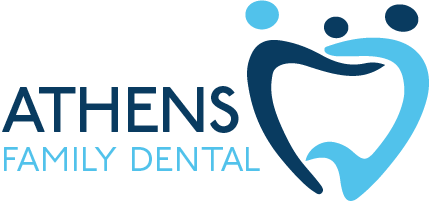
06 Feb How Dental Issues Could Hurt Your Child’s Speech Development
Speech delays are common. The National Institute on Deafness and Other Communication Disorders (NIDCD) says, “By fifth grade, five percent of Americans have noticeable speech disorders.” So if you fear that your son or daughter is not speaking as articulately as they ought to be for their age, just know you’re not alone. What’s more, what if we told you that the root cause of their trouble with speaking correctly might just be their dental health?
Dental health plays a vital role in a child’s speech development. Teeth that are missing, overcrowded, or causing a child to be self-conscious are all examples of subtle problems that could influence your child’s ability to properly form and produce sounds. If you are worried about the impact your child’s dental health is having on their speech, reach out to our office today.
How do we form speech?
When you stop to think about it, all the words that we say without a second thought are actually the result of the intricate interaction of our lips, jaw, vocal cords, tongue, and teeth. The role that the teeth play in all of this is vital. As one dentistry explains, “Teeth help us produce all kinds of sounds, including /f/ (“found”), /v/ (“virtue), /s/ (“sew”), /z/ (“zip”), the “ch” in “china,” the g sound in “gym,” and the “sh” sound in “shoe.” Teeth are also partially responsible for the voiceless sounds like “th” (“thirst”).” (Vacendak) Can you imagine trying to produce the thousands of words we say every day without any teeth? We would have a pretty hard time! A healthy mouth—from teeth to gums to tongue to properly structured jaw—is crucial to a child’s success in speech development.
How might my child’s development be impaired?
You can imagine, then, that when a child’s dental health gets thrown off, their normal speech development likely would be as well. There are several dental issues that could impact the way your child learns to pronounce certain sounds and form words. Here, we’ll dive deeper into some of those ways.
Appearance
NOVA is a pediatric dentistry that has researched the connection between dental issues and the development of a child’s speech. They point out that, “When anyone, even a child, is self-conscious about the appearance of their teeth, they might refrain from opening their mouth wide enough – causing them to mumble or speak incorrectly.”
Missing Teeth
Recall what we discussed earlier: the mouth (and especially teeth) play a vital role in forming speech. The CDHP Dental Project explains in further detail the role of the teeth themselves in enunciation and pronunciation. Teeth are responsible for:
- Providing rigid surfaces for the tongue, lips and cheeks to push against to make sounds
- Directing air flow and modulating release of air pressure for consonants
- Allowing consonant sounds like ‘s’ and ‘f’ to be elongated
- Aiding placement and shaping of the tongue to articulate vowel sounds
- Supporting the consistent rhythm of syllables within words through chewing motion
If the teeth are responsible for all of these functions, think about what happens when one (or multiple) are not there! Missing teeth change the structure of the mouth, making some sounds difficult to pronounce. While your toddler might look adorable with only a couple of teeth erupted, it may also be the reason he can’t pronounce certain sounds. The same thing can happen again when teeth start falling out, and your daughter gets that eight-year-old gap-tooth grin—she might be unpleasantly surprised by the lisp that can come with that.
Malocclusion
A malocclusion is the dental term for a misaligned bite (i.e. overbite or underbite) or otherwise misaligned teeth. Buck teeth, excessive spacing, crowded teeth, or crossbite are all examples of malocclusion. As you can imagine, this makes speech difficult. If a child has a crossbite, for example, they will get a T, N, or D sound when they try to produce an S, Z, or L.
Malocclusions do not fix themselves. In fact, there’s reason to believe that without the intervention of a specialist, malocclusions found in children will only worsen as the child grows up. If your son or daughter has a misaligned bite, it’s important to address it before it causes further problems.
Tongue Tie
Tongue tie is yet another dental health issue that makes it difficult for a child to properly form and articulate their words. Speech therapist Stephanie Hatleli explains, “A tongue-tie, also known as ankyloglossia, occurs when the tissue connecting the underside of the tongue to the floor of the mouth (called the frenulum) is shorter or tighter than usual.” This makes it difficult for the child to move their tongue, and thus pronounce certain sounds. Tongue ties occur in roughly 4-10% of the population. While not all of these cases require intervention, some may be severe enough to require surgery. It’s best to start with speech therapy before progressing to options like surgery. Still, if a child doesn’t have full range of motion with their tongue, sounds such as D, T, or S become much more challenging.
Orofacial Myofunctional Disorders
The American Speech-Language-Hearing Association defines orofacial myofunctional disorders (OMDs) as “…patterns involving oral and orofacial musculature that interfere with normal growth, development, or function of orofacial structures, or call attention to themselves….” In everyday terms, as NOVA puts it, “OMDs cause a disconnect between the tongue, lips, cheeks and teeth. They occur when the tongue falls into an abnormal position – usually between the top and bottom teeth or too far forward.” Naturally, this interferes with a child’s ability to form sounds properly. Often, children with OMDs will struggle to pronounce, in particular, the sounds of S and Z.
Poor Jaw Structure
It may strike you as odd that the shape of your child’s jaw could be affecting the way they form and enunciate words. But one thing affects another when it comes to dental health, and jaw structure is no different. If a child’s jaw is too small, the teeth will be overcrowded. This limits the space for the tongue to move, not to mention causing dental health issues of its own! Oral surgery may be required to correct an overly small jaw.
How can I help my child?
We’ve explored a variety of ways that dental issues may affect your child’s ability to properly form and articulate their words. So now, the question follows, how can you help your child who may be mumbling, lisping, or otherwise unintelligible for any one of these reasons?
For starters, speech therapy might be necessary. Speech therapy helps many children overcome struggles in forming and articulating their words. It is a blessing for many families. If your son or daughter has a tongue tie, it might be the case that speech therapy isn’t sufficient to overcome their struggle. That’s where surgery comes in. As discussed earlier, in the cases of tongue tie or an overly small jaw, surgical intervention might be required to help the child flourish.
These are just a few examples of how these dental issues might be addressed. As always, the child’s dentist is the one who will be able to address the problem at hand most fully and recommend solutions for you to try. Before pushing ahead with one solution or another, we always recommend a visit to the dentist.
It can be frustrating to try and understand your child through the hindrance of a speech impediment. It can be even more frustrating when you realize that it’s a dental issue that’s at the heart of it. But the good news is, once you realize it’s really a malocclusion, or a missing tooth, or a tongue tie that’s causing your child to struggle to speak properly, you can address the root of the problem. We here at Athens Family Dental want to help you do that. Please reach out to our office to schedule your next appointment today.

About Our Team
Dr. McReynolds and our team at Augusta Family Dental have over 40 years of experience in the field of dentistry. We’re passionate about improving lives through better oral health as well as educating our patients.
Come see why we’re Athens, TN top choice for dentists!

Sorry, the comment form is closed at this time.